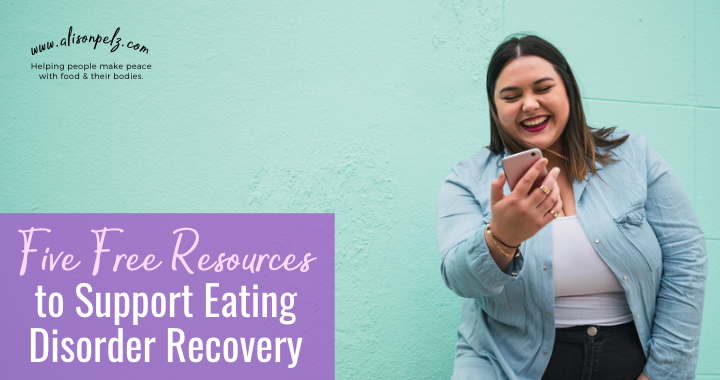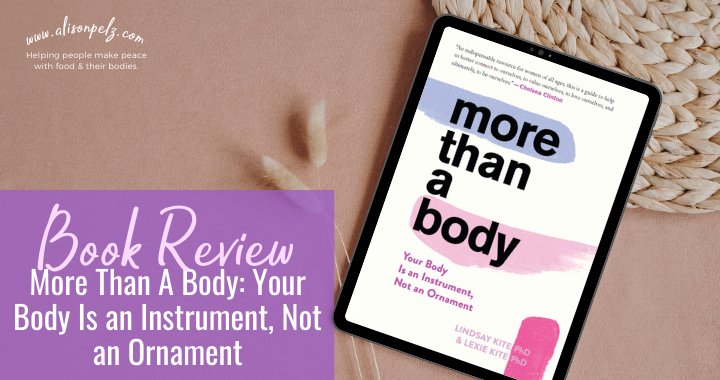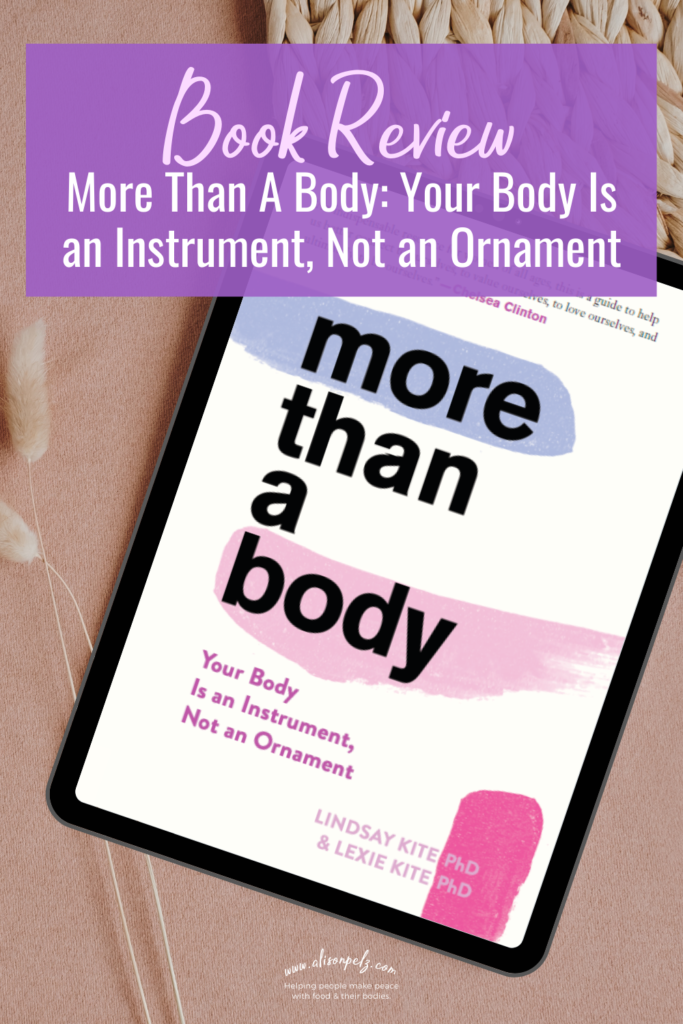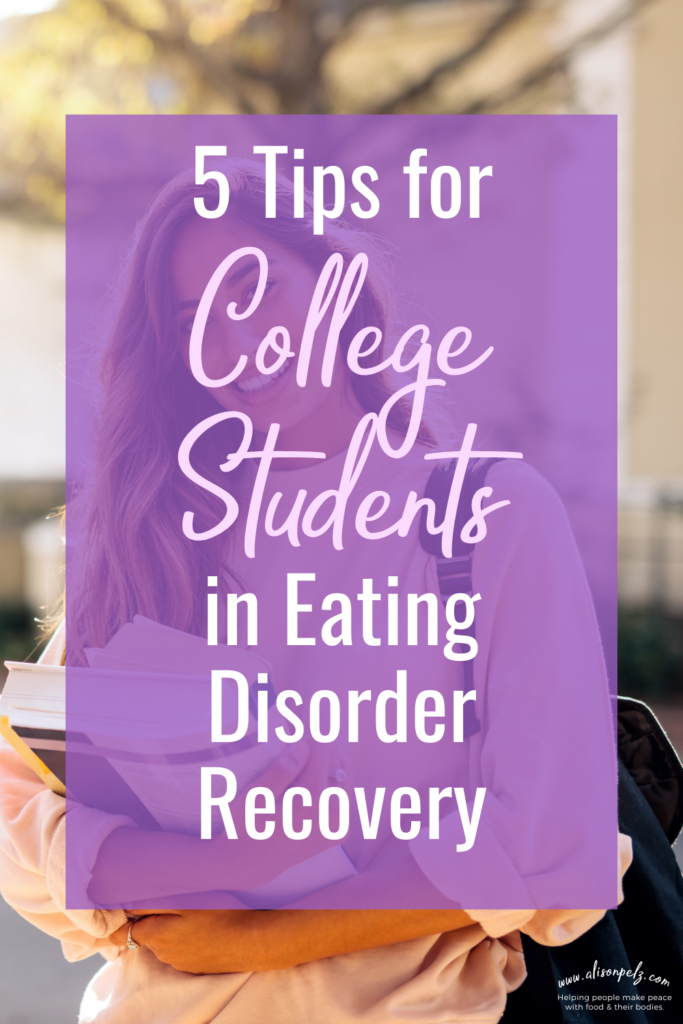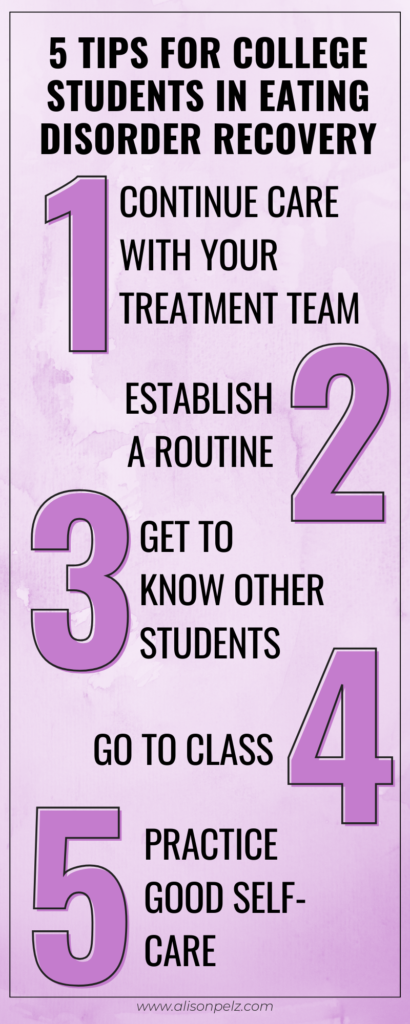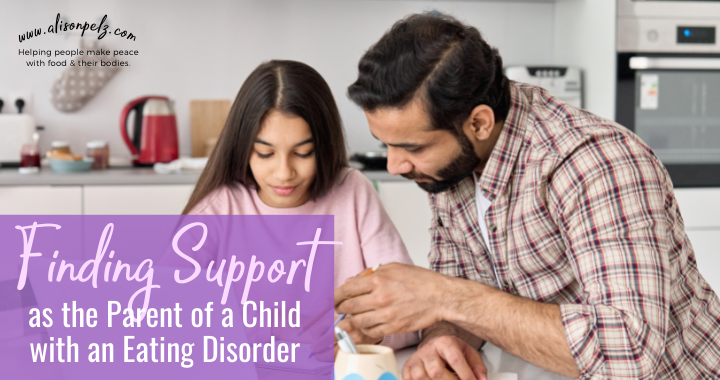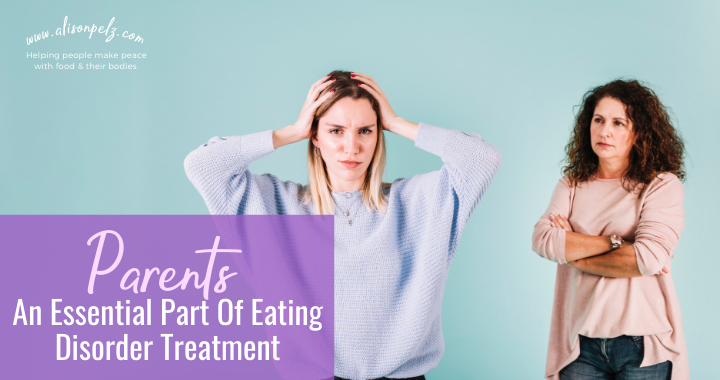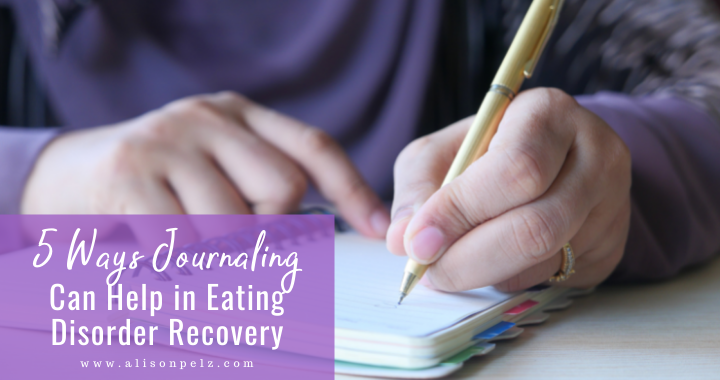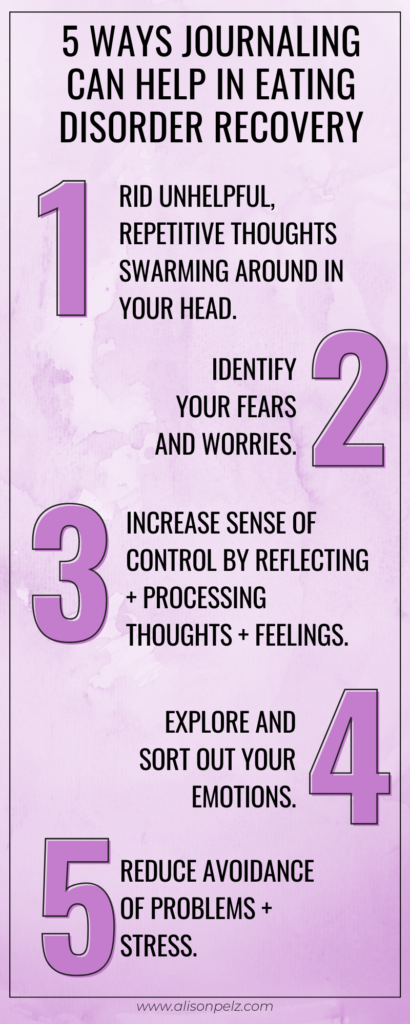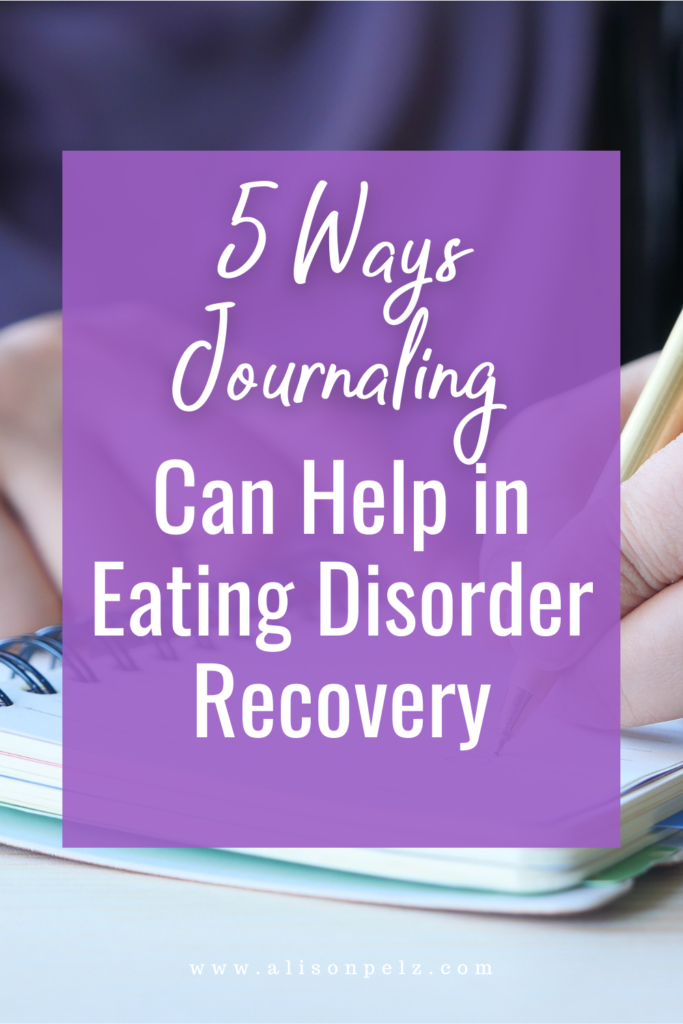Eating disorder recovery is tough. Learning about eating disorders can help. I have a great list of free resources.
Are you just getting started with eating disorder recovery? Or do you have a treatment team in place, but are looking for some extra support? Does your teen have an eating disorder and you’re looking for ways to support them (and yourself)?
Many of these free eating disorder recovery resources are in the form of support groups and mentorship programs.
Besides being free, the emphasis on connection is another reason why I love these resources. Eating disorder recovery doesn’t occur in a vacuum. We are social creatures, and connection can be especially healing in hard times.
Eating disorders are really hard to understand. Support groups can help you learn more about eating disorders while feel seen and understood. Eating disorder groups are filled with folks who are going through what you are experiencing and who can relate to your ups and downs.
Additionally, support groups reduce feelings of shame, guilt, anxiety, depression, and isolation. Attending an eating disorder support group can help you find new ways to cope during recovery.
If you or your teen is in eating disorder recovery, check out these 5 free eating disorder recovery resources:
1. National Alliance for Eating Disorders
The National Alliance for Eating Disorders is a great resource with lots of information about the treatment of eating disorders.
According to their website, “The National Alliance for Eating Disorders (formerly The Alliance for Eating Disorders Awareness) is the leading national nonprofit organization providing referrals, education, and support for all individuals experiencing eating disorders and their loved ones.”
The Alliance offers free support groups for people with eating disorders and those who love them. Support groups meet in-person and others meet virtually.
Click here to learn more about the free support groups offered by the National Alliance for Eating Disorders. For any readers in Austin, TX, there is an in-person group held weekly.
2. F.E.A.S.T. (Families Empowered And Supporting Treatment for Eating Disorders)
F.E.A.S.T. is an international network to help support caregivers and parents who have a teen with eating disorder.
The organization was started by parents to help other parents: “We are here because we have been there! F.E.A.S.T. is an international non-profit organization of and for parents and caregivers of loved ones affected by eating disorders. Our free programs and services offer families much needed support, information, skills, and tools to help them on their journey. F.E.A.S.T. is about parents helping parents, about paying it forward, and about being there for families at a time when they need us the most.”
Be sure to visit the services tabs on their website which links you to forums, guides, videos, and much more. The videos from F.E.A.S.T. are one of my favorite resources. There are videos of family members, who are going through the exact same thing as you. There are also videos from highly regarded eating disorder treatment professionals talking about various treatment topics so you can learn more.
Be sure to sign up for F.E.A.S.T. 30 Days. It’s a free program that sends you one email a day for 30 days, each including a brief lesson on how to support your teen during recovery.
3. ANAD (National Association of Anorexia Nervosa and Associated Disorders)
ANAD, or the National Association of Anorexia Nervosa and Associated Disorders, is a non-profit whose mission is to provide free peer support services to anyone struggling with an eating disorder.
Their website states, “Recovery is possible. ANAD is here to help. ANAD is the leading nonprofit in the U.S. that provides free, peer support services to anyone struggling with an eating disorder, regardless of age, race, gender identity, sexual orientation, or background. Our nationwide network of volunteers understand first-hand the ups and downs of the recovery journey—because they, too, have lived the experience of an eating disorder. ANAD empowers volunteers to help others through their own recovery.”
ANAD has a helpline where you can get referrals to treatment and get emotional support. In addition to the helpline, ANAD offers a free mentor support program. You can get matched with a peer mentor who has recovered from an eating disorder to help support you through the recovery process. Having a mentor who has already been through it can be extremely helpful in bolstering support, motivation to change, and instilling hope that recovery is possible.
ANAD also offers free virtual support groups for folks with eating disorders. They offer general support groups as well as groups for specific identities including LGBTQ+, BIPOC, Older Adults, Teens & Young Adults, and People in larger bodies.
4. Project HEAL
Project HEAL helps to find eating disorder treatment. Access to quality healthcare is not always easy, and there are lots of reasons why most people who deal with eating disorders do not get treatment. The goal of Project HEAL is to help those who the system fails find treatment for eating disorders.
According to their website, “Project HEAL’s vision is to create a world where everyone with an eating disorder has the opportunities & resources they need to heal. Our programs break down systemic, healthcare, and financial barriers that millions of people in the U.S. face when trying to heal from their eating disorder.”
They provide free services to help you find treatment including:
- Clinical Assessment Program which helps determine a diagnosis, treatment recommendations, and referrals.
- The Treatment Placement Program offers free or very discounted treatment via vetted treatment providers.
- Cash Assistance Program Offers recipients a one-time cash assistance grant to help cover the costs of treatment.
- Insurance Navigation Program. This program helps people navigate the complexities of insurance.
5. FEDUP (Fighting Eating Disorders in Underrepresented Populations: A Trans+ & Intersex Collective)
FEDUP is a collective that is made up of trans, nonbinary, intersex, and gender expansive people who view eating disorders through a social justice lens. Their work is focused on eating disorders in marginalized communities – understanding them, treating them, and preventing them.
Their mission is “to make visible, interrupt, and undermine the disproportionately high incidence of eating disorders in trans and gender diverse individuals through radical community healing, recovery institution reform, research, empowerment, and education”.
They have a wealth of information on their website. A list of free virtual support groups. FEDUP has an approved list of providers who provide affirming care, and a Treatment Scorecard which scores some of the largest treatment centers in the US on various accessibility criteria. In addition, they provide training and workshops for treatment facilities to become gender-literate. They also have a guide to gender-affirming surgeons with consideration of BMI limits for each surgeon.
This is just a short list of free and reliable resources to help support you in your eating disorder recovery. I encourage you to explore these resources to see if one is right for you!
